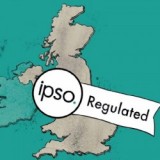 The press watchdog has rapped a regional daily which did not get paternal consent before publishing photographs of the children of a woman who died from cancer.
The press watchdog has rapped a regional daily which did not get paternal consent before publishing photographs of the children of a woman who died from cancer.
The Independent Press Standards Organisation has upheld a complaint about the Yorkshire Evening Post by the children’s father, who said the photographs had been published without him giving the green light.
The story in question had included two unpixelated photographs of the woman and her children which were provided by her most recent partner, who was not the children’s father, following a conversation between a YEP reporter and the woman’s mother.
IPSO found that, although the reporter had been acting in good faith in assuming those who provided the photographs were in a position to consent to their publication, no enquiries had been made as to whether either of the people were in a position to provide the appropriate parental consent.
The Leed-based YEP had covered an event being organised to help raise funds for the children to go on holiday following the death of their mother, which featured quotes from the man who provided the photos, and included the children’s first names, ages and the date on which the woman had died.
The first photograph covered approximately half of the article’s page and showed the trio in the swimming pool, and the second smaller image showed the woman with her two children in fancy dress.
In his complaint to IPSO under Clause 2 (Privacy) and Clause 6 (Children) of the Editors’ Code of Practice, the unnamed man said the story’s publication had been very distressing for the family, adding the children had been approached at school to talk about their mother’s death – having not previously known the date on which she died.
Apologising for any distress caused, the YEP said it had been contacted by the children’s grandmother, who wanted to raise awareness of the fundraising efforts.
The journalist had asked if she could provide any photographs of her daughter and grandchildren, and had subsequently been directed to the man who had provided the pictures.
The YEP said that the photographs had been published in good faith with the intention of helping raise awareness of the fundraising effort, adding that modern families were complicated and it had no reason to believe that the person who provided the photographs was not in a position to consent to their publication.
It believed the photographs were not published on an issue related to the children’s welfare, and nothing private was revealed by them, while the date of the woman’s death had already appeared on the fundraising group’s open Facebook page.
On learning of the children’s father’s concerns, the YEP had amended the online article to remove the photographs of the children, and the editor and reporter met him to discuss his concerns.
IPSO acknowledged that it may not always be possible to know who has parental responsibility for a child, and that the reporter had been acting in good faith in assuming that the people who provided the photographs were in a position to consent to their publication.
However, neither of them had parental responsibility and therefore they were not “similarly responsible adults” for the purposes of Clause 6.
It found the fact or date of a death is not private information, while the partner of the woman was free to speak about the circumstances of her death in line with his right to freedom of expression.
The complaint was upheld under Clause 6, and the full adjudication can be read here.





 Follow HTFP on Twitter
Follow HTFP on Twitter